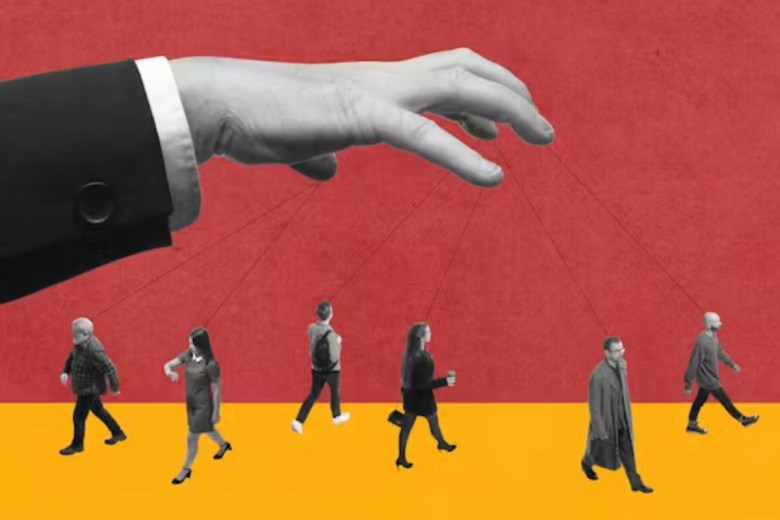Politics
Cognitive Warfare: Understanding a Growing Global Threat

A new form of conflict is emerging, one that operates predominantly in the cognitive realm rather than through traditional military means. This phenomenon, termed cognitive warfare or “cog war,” exploits psychological manipulation to achieve strategic objectives without the physical destruction associated with conventional warfare. A troubling aspect is that existing international laws do not adequately address the implications of such tactics, potentially allowing states to engage in harmful disinformation campaigns without facing legal repercussions.
Cognitive warfare can manifest in various ways, including the dissemination of false health information that can incite panic and lead to real-world consequences. For instance, if a foreign actor spreads disinformation about a deadly flu strain, leading to hospital overcrowding and preventable deaths, the ramifications are significant. Despite the casualties, current legal frameworks fail to classify such acts as warfare, creating a dangerous legal blind spot.
Understanding Cog War and Its Implications
Cognitive warfare aims to shape perceptions and behaviors at individual and societal levels. It often employs tactics like “reflexive control,” a strategy perfected by Russia that manipulates an adversary’s understanding of reality without their awareness. In the ongoing conflict in Ukraine, narratives about historical claims to territory and portrayals of Western nations as morally corrupt exemplify cog war tactics. The objective is to gain an advantage by altering how individuals and groups perceive their circumstances.
The rise of digital communication has amplified the effectiveness of cognitive warfare. Techniques such as “microtargeting,” which tailors information based on users’ digital footprints, allow actors to influence opinions and behaviors subtly. Advanced technologies, including artificial intelligence, support the dissemination of targeted content, often without the audience realizing they are being manipulated.
During the Covid-19 pandemic, misinformation about the virus and its treatments led to significant public health challenges. Allegations of bioweapons labs in Ukraine and claims that Ukrainian authorities were concealing outbreaks illustrate how cog war narratives can intertwine with geopolitical objectives. Such tactics not only compromise public health but can also lead to broader societal unrest.
Legal Gaps and Future Considerations
Traditional laws of war, which primarily address physical violence, do not encompass the psychological dimensions of cognitive warfare. The question arises: does psychological manipulation constitute an “armed attack” under the United Nations charter? Currently, no definitive answers exist, leaving countries vulnerable to psychological operations that can result in mass casualties under the guise of non-violent strategies.
The legal ambiguity extends to situations where military deception blurs the lines between permissible tactics and prohibited actions. For instance, a humanitarian vaccination program could be exploited for military purposes if it secretly collects data for targeting insurgents. Such manipulative tactics challenge the principles of humanitarian law, which traditionally emphasize the protection of civilians.
As the landscape of warfare evolves, there is an urgent need to rethink what constitutes a threat in modern conflicts. The UN charter already prohibits threats to use force, but cognitive warfare presents a different kind of challenge. When disinformation campaigns are designed to destabilize a nation, they represent a significant threat, comparable to military aggression.
Addressing these challenges requires a multi-faceted approach. Recognizing psychological harm as a legitimate form of injury is essential. Just as post-traumatic stress disorder has been acknowledged as a war injury, the mental health effects of targeted cognitive operations should be formally recognized.
Furthermore, existing human rights frameworks, which include protections for freedom of thought and opinion, could serve as a foundation for safeguarding individuals against cognitive attacks. States must uphold these rights both domestically and internationally, ensuring that citizens are protected from manipulative tactics that undermine their autonomy.
The emergence of increasingly sophisticated cognitive warfare tactics represents one of the most insidious threats to human rights and autonomy in contemporary society. Adapting legal frameworks to address these challenges will be crucial in fostering societal resilience and preparing future generations to confront the crises and conflicts of tomorrow.
David Gisselsson Nord is a professor in the Division of Clinical Genetics at Lund University, while Alberto Rinaldi is a postdoctoral researcher in human rights and humanitarian law at the same institution. This analysis highlights the need for urgent dialogue around the implications of cognitive warfare in the context of global security.
-

 World5 months ago
World5 months agoSouth Korea’s Foreign Minister Cho Hyun to Visit China This Week
-

 Business5 months ago
Business5 months agoStarling Bank Plans Secondary Share Sale, Targeting $5.4 Billion Valuation
-

 Top Stories5 months ago
Top Stories5 months agoMunsang College Celebrates 100 Years with Grand Ceremony
-

 World5 months ago
World5 months agoPAS Aims to Expand Parliamentary Influence in Upcoming Election
-

 Business7 months ago
Business7 months agoKenvue Dismisses CEO Thibaut Mongon as Strategic Review Advances
-

 Lifestyle6 months ago
Lifestyle6 months agoHumanism Camp Engages 250 Youths in Summer Fest 2025
-

 Sports6 months ago
Sports6 months agoDe Minaur Triumphs at Washington Open After Thrilling Comeback
-

 Sports7 months ago
Sports7 months agoTupou and Daugunu Join First Nations Squad for Lions Clash
-

 Top Stories7 months ago
Top Stories7 months agoColombian Senator Miguel Uribe Shows Signs of Recovery After Attack
-

 World7 months ago
World7 months agoASEAN Gears Up for Historic Joint Meeting of Foreign and Economic Ministers
-

 Health6 months ago
Health6 months agoNew Study Challenges Assumptions About Aging and Inflammation
-

 Business7 months ago
Business7 months agoOil Prices Surge Following New EU Sanctions on Russia









